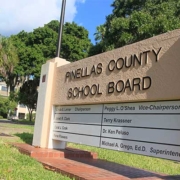Planning for the Care of Your Pet: How to Include Your Pet in Your Estate Plan
If your pet is beloved as a family member, you likely want to ensure that he or she will be well cared for in the event of your incapacity or death.
Without explicitly stated wishes, these furry family members could end up without a home of their own, if you die or become unable to care for them.
To prevent this tragic outcome, include planning for your pet in your estate plan. Here are a few important issues to consider when planning your estate with your beloved pet in mind.
Who will get ownership of your pet?
Pets are property and not people. Because of this legal distinction, an agent must be named in your estate plan to take ownership of your pet or arrange for your pet to have a loving home. In absence of a legally enforceable document stating your wishes, your pet could suffer the fate of many when their owners pass on: an animal shelter.
How will that person provide for your pet?
Pets require food and medical care. These costs can be significant if your pet has a health condition or is aging. Money can be set aside for your pet with specific directions about how those funds can be used and by whom.
How will your pet be cared for?
You may want to consider leaving instructions on how your pet should be cared for, as well as consider financial incentives for the person you’ve named to care for your pet pursuant to your wishes. This is especially important if your pet has any health conditions, is aging or is an exotic animal. Detailed instructions (and the money to carry them out) will ensure your pet’s new guardian can provide the same quality of care you provide now.
To ensure all your loved ones are cared for when you die, it is necessary to create a comprehensive estate plan that will ensure all your wishes are carried out, even if you don’t consider yourself financially wealthy. If you are ready to take that step toward peace of mind, begin by coming in to meet with us. As your Attorney, we can help you create a comprehensive estate plan that will protect your assets, your wishes and all your loved ones, furry friends included.
Contact me at (727) 420-2705 to schedule your appointment.
Carol A. Lawson, Esq., 28870 U.S. Hwy 19 #300, Hodusa Towers, Clearwater, FL 33761
Phone: (727) 410-2705; email: calh@gate.net
Clearwater Bankruptcy Attorney, Clearwater Bankruptcy Lawyer, Clearwater Bankruptcy, Clearwater Estate Planning Attorney, Pinellas Estate Planning Attorney, Pinellas Probate Attorney #FileLocallyDontOverpay #ClearwaterBankruptcy #ClearwaterBankruptcyAttorney#ClearwaterEstatePlanningAttorney #Pinellas ProbateAttorney














